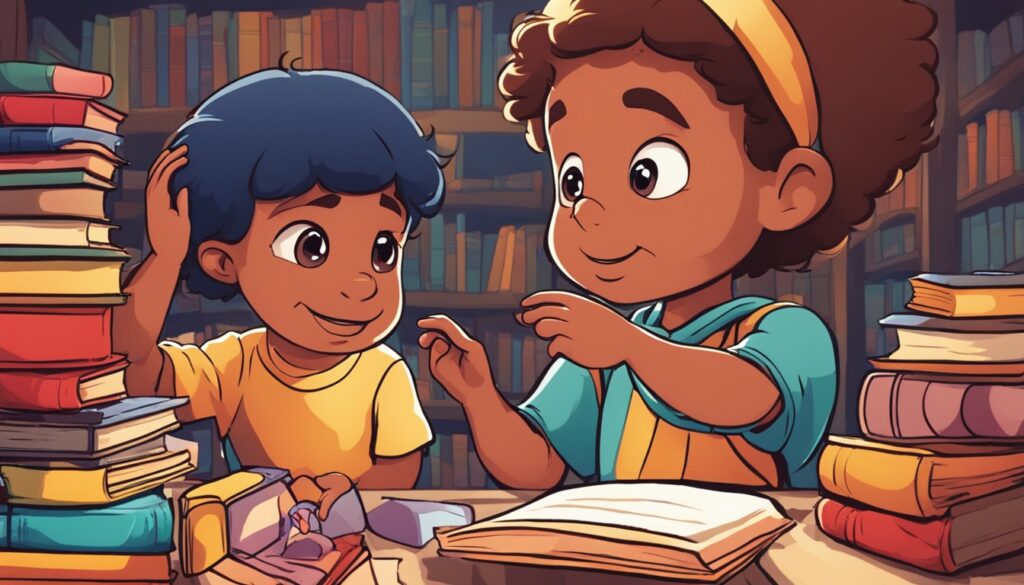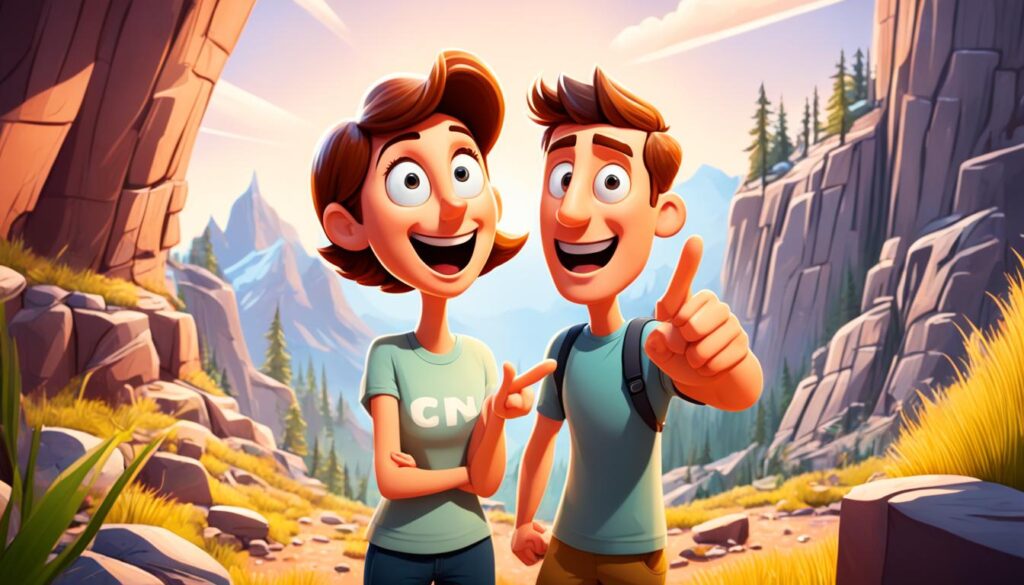Curiosity is a mighty force within us all, waiting eagerly. It drives us to discover, learn, and unravel the unknown. Embracing curiosity leads to happiness, health, and fulfillment. It quenches our intellectual thirst and boosts our well-being in many ways.
Curiosity fills us with positive feelings. Studies link it to joy, excitement, and interest1. Exploring with curiosity, we find wonder and amazement. It connects us more deeply to our surroundings, lowering anxiety and enhancing life satisfaction1.
Curiosity also boosts our learning and achievement. It’s tied to better school and work performance. Curious minds dive into learning, making knowledge stick better1. They’re more inclined to ask questions, tackle challenges, and overcome setbacks. This leads to greater success and achievement.
It even enriches our relationships. Showing real interest in others strengthens our bonds. Being curious means listening well and understanding others1. This builds empathy and compassion, helping us see from various viewpoints and connect on a deeper level.
In healthcare, curiosity makes a huge difference. Curious medical professionals ease patient anger and improve care outcomes. By understanding each patient’s story and concerns, they offer better, more personalized care. This fosters a trusting, healing atmosphere1.
Curiosity’s benefits are clear. It’s not just for the naturally curious; it’s a tool for everyone. Let’s start a journey of discovery and growth. Embracing curiosity opens up a world of possibilities.
Key Takeaways:
- Curiosity is linked to higher levels of positive emotions, lower anxiety, greater satisfaction with life, and improved psychological well-being. (Source:1)
- Curiosity is associated with higher academic achievement, greater learning, engagement, and performance at work. (Source:1)
- Demonstrating curiosity towards others builds closer relationships and increases attraction. (Source:1)
- Genuinely curious doctors and healthcare providers improve treatment outcomes and patient satisfaction. (Source:1)
The Survival Ostensible Advantages of Curiosity
Curiosity does much more than just make us want to know things. It’s a potent force that aids our survival. When we are curious and explore, we navigate life better and grab new chances.
Curiosity sparks our brain’s reward centers. Finding something new releases dopamine, making us feel good. This process makes us seek out more new things2.
It also helps us survive better. Being curious makes us learn about our surroundings, spotting dangers and chances to grow. Curiosity makes us better at adapting to change, helping us succeed in uncertain times3.
Furthermore, being curious makes us smarter and more capable. Research says curious people do better in school. They are also more persistent, creative, and eager to learn. These traits help us succeed in life42.
Curiosity matters in solving problems too. It makes us think deeper and differ from usual ways. This leads to new solutions for tough problems3.
In the end, curiosity does more than entertain our minds. It improves our brains, helps us explore, learn, adapt, and tackle problems. So, keep being curious and discover the world’s wonders!
The Happiness Boost from Curiosity
Curiosity is a key part of being human. It helps us feel happier and more content. Studies show it can make us less anxious and more satisfied with our lives.
Let’s look at how being curious improves our happiness and well-being.

Curiosity and Positive Emotions
When we’re curious, our brain gives us a happiness boost. This is because it releases dopamine, making us feel good. Just like enjoying a meal or being close to someone
Curiosity makes us excited to learn and try new things. It’s like being on an adventure where every discovery brings joy5.
Curiosity and Reduced Anxiety
Curiosity helps us worry less. Seeing the unknown as a chance to grow makes us brave. Instead of feeling scared, we get excited about new challenges5.
This helps us move beyond what’s comfortable. Exploring new things can be scary, but curiosity turns fear into a chance to learn and grow.
Curiosity and Satisfaction with Life
Being curious opens up the world to us. We keep learning, which makes life more interesting. This leads to feeling more fulfilled and happy with our lives6.
Curious people always find something amazing in the everyday. They feel more alive and full of wonder at the world around them.
Curiosity and Psychological Well-being
Curiosity is also good for our minds. It keeps us sharp and focused when we learn new things. People who are curious tend to remember better and think clearer6.
It makes us better friends too. Curious people are good at listening and talking with others, making stronger connections5.
| Benefits of Curiosity on Happiness and Well-being |
|---|
| Increased positive emotions and happiness |
| Reduced anxiety and fear |
| Enhanced satisfaction with life |
| Improved psychological well-being |
| Strengthened social connections |
Curiosity greatly improves our well-being. It brings us joy, helps us face fears, and leads to a more fulfilling life. By embracing curiosity, we discover more happiness and meaning in our lives.
Curiosity and Achievement
Curiosity is key to doing well in school. It makes learning fun and drives students to give their all. When students really want to learn about a topic, they enjoy school more and do better7.
Studies have found that curiosity helps students learn better. It makes them more involved and eager to learn7. Curious students look for new info, ask questions, and view things from different angles. This helps them understand and remember things better.
Also, curiosity leads to better thinking skills. It pushes students to weigh new info against what they already know7. This skill of thinking about info critically helps them solve problems better and improve in school.
Teachers can spark curiosity with their lessons. This gives students the basic info they need and makes them want to learn more on their own7. By lighting the spark of curiosity, teachers help students start their own learning journeys. Students then explore topics they find interesting.
Curiosity isn’t just good for school, it’s also important for personal growth and happiness. Curious people find more meaning and joy in life8. They try new things, look at life from different points of view, and never stop wanting to learn. This leads to personal growth and happiness.

| Benefits of Curiosity on Achievement | Statistical Data |
|---|---|
| Increased enjoyment and participation in school | Reference:7 |
| Higher academic achievement | Reference:7 |
| Improved learning, engagement, and performance at work | Reference:7 |
| Enhanced critical thinking skills | Reference:7 |
| Personal growth and overall life satisfaction-td> | Reference:8 |
Curiosity and Empathy
Curiosity is not just about us. It helps us develop empathy and connect deeply with others. By being curious, we learn about different lives and viewpoints9. This helps us see beyond our biases and judgments, making our interactions more compassionate and meaningful.
We connect by engaging with people who have different experiences and beliefs. Asking questions and listening well shows our empathy. This creates chances for connections10. By seeing the world through others’ eyes, we appreciate diverse experiences. This makes our relationships richer.
Brené Brown, a famous researcher, says curiosity means embracing the unknown and discomfort9. Stepping out of our comfort zones brings us closer to others. It challenges our beliefs and broadens our views, which helps us grow personally and connect better with people.
Curiosity is not without its emotional challenges. When we learn about others’ struggles, we connect on a deeper emotional level9. Understanding and empathizing with their pain helps us support them better in hard times.
Choosing empathy strengthens trust and relationships more than offering pity9. Pity can push people away. True empathy involves understanding and listening, creating a space where complex issues can be discussed openly910.
Trust is key in empathy-based connections. When someone shares their struggles with us, it’s a chance to show we understand their pain9. This reminds us that many people face similar issues, emphasizing empathy’s role in supporting others.
Curiosity and empathy go hand in hand, enriching our understanding and personal growth. By being curious, we foster empathy and build genuine, trusting relationships.

| Statistical Data | Benefits of Curiosity and Empathy |
|---|---|
| Curiosity promotes empathy and understanding different perspectives | Enhances personal connections and fosters compassion |
| Practicing empathy through curiosity leads to compassion growth | Supports personal and professional relationships |
| Choosing empathy over disconnection builds trust | Facilitates open communication about complex issues |
| Less curiosity contributes to loneliness and isolation | Encourages engagement and collaboration |
| Curiosity can help overcome biases and assumptions | Strengthens relationships and fosters understanding |
| Being curious increases levels of empathy | Promotes deeper connections and better understanding |
Curiosity and Relationships
Curiosity is key in making connections stronger in relationships. It shows we really care about others. By being interested and sharing about ourselves, we make our bonds closer.
Studies say people who are curious are seen as more attractive and closer by others11. This shows how important being curious is in forming strong relationships.
Curious folks can guess their partner’s personality traits well11. By wanting to know more and understand their loved ones, they create a special bond.
In Japan, curious people handle social rejection better. They don’t get less happy or more depressed easily11. This shows curiosity helps us stay strong even when things get tough.
Curious people don’t get as upset when someone hurts their feelings11. This shows they have good emotional control and can understand others’ feelings better.
In romantic relationships, curiosity means less fighting. Curious partners don’t choose to fight back when they feel hurt11. This makes the relationship more supportive and caring.
Curiosity makes us feel more positive in talks, even if we’re shy11. Curious people also seem more fun, playful, and creative when meeting new people11. This makes conversations more interesting and helps us get closer.
Arthur Aron’s studies show that boredom can end relationships, not just fights or money problems11. Being curious keeps things exciting and helps us grow together.
Curiosity is a big deal for great relationships. It helps us grow, connect on a deeper level, and have fun adventures. By being curious, we make our relationships better and closer.

Curiosity and Healthcare
Doctors and patients get along better when doctors are curious about their views. This leads to smarter decisions and more effective treatments. Curiosity helps improve health outcomes.
Studies indicate curiosity boosts memory, increases happiness, and protects against depression and anxiety12. It can also spark more creativity12.
To really get what patients are going through, doctors need to be curious. By asking questions and listening well, they connect deeper with patients. They become more curious about their patients’ health and treatment plans.
Benefits of Curiosity in Healthcare
1. Improved Patient Satisfaction: Curious doctors make patients feel important and listened to. This builds trust and makes patients happier with their care. It even cuts down on frustration12.
2. Enhanced Communication: Curiosity leads to better talks. Doctors ask more open-ended questions and listen more. This helps them understand patients’ worries and preferences better. So, treatments fit patients better too.
3. Personalized Treatment: Curiosity lets doctors tailor treatments to fit each patient. Knowing patients’ views helps find treatments they’re more likely to follow. This helps patients get better faster.
4. Holistic Approach: Curiosity urges doctors to look at all that affects patients’ health. They consider lifestyle, social factors, and mental health. This broad view helps tackle the root problem and promotes overall health.
Curiosity is key for focusing on patients in healthcare. Curious doctors make care more humane and effective. This leads to happier, healthier patients.

| Statistic | Source |
|---|---|
| Curiosity associated with improvements in memory, higher life satisfaction, and being a protective factor against anxiety and depression | Gruber & Ranganath, 2019; Proctor et al., 2011; Zainal & Newman, 2023 |
| Creative interventions can enhance curiosity | Schutte and Maloff, 2022 |
Cultivating Curiosity for a Fulfilling Life
Curiosity is more than just an interest in something new. It boosts your happiness and helps you grow as a person. It leads to a happier life, more determination, joy, and purpose13.
Curiosity can help fight sadness and reduce negative feelings13. With curiosity, you face challenges with excitement and a love for discovering new things. This gives you a positive view of life.
Experts are studying how curiosity can change our actions, especially with mindfulness13. It’s a tool for solving conflicts and overcoming prejudice. Being curious makes us understand and care for others better.
Curiosity also makes learning and remembering things easier by activating happy brain areas13. When you’re curious, your brain gets better at taking in and keeping information.
You can become more curious without needing special tools or lots of time13. Just do things that interest you and seek out new experiences. This way, you start a journey of exploration for life.
Meditation can help grow your curiosity. It lets you see if your thoughts and reactions might not be accurate. Through meditation, you learn more about yourself and adopt healthier behaviors13.
Practicing meditation every day helps increase curiosity and self-awareness13. By being mindful in every action, you marvel at the world around you.
To turn curiosity into insight, keep your mind open to different outcomes13. Stay curious, seek knowledge, and challenge what you believe. This leads to personal growth and change.
Curiosity is a skill you can improve to enhance your life. It opens you to new experiences, broadens your view, and uncovers endless possibilities.

The Benefits of Curiosity
| Statistics | |
|---|---|
| 100% of children were required to read for an hour every day14 | 100% of individuals with curious minds may lead fuller lives, exploring more opportunities, connecting with more people, and trying new things14 |
| Potentially 100% of children stopped asking questions due to enforced reading, affecting their curiosity levels negatively14 | 100% of individuals could be born curious and in wonder, suggesting a natural inclination towards curiosity14 |
| 100% of individuals were born curious based on the statement that curiosity remains present and waiting to be awakened14 | 100% of individuals could benefit from dropping labels to enhance experiences, as exemplified by the story of the person labeled as “annoying”14 |
| Encouragement to explore and think freely implied 100% success in fostering curiosity14 | Boredom was suggested as inhibiting curiosity, potentially affecting individuals who feel bored14 |
| Suggested use of the word “but” after stating boredom may help open doors to exploring possibilities instead of limiting the mind14 | Individuals were encouraged to question everything with fascination, implying a shift in perspective that could positively impact curiosity levels14 |
The Impact of Curiosity on Longevity
A study in 1996 found curious men lived longer than others by 30% over five years15. Curiosity seems to help older adults live longer too, as shown in a study with women averaging 68 years15.
Curiosity benefits older adults’ mental and physical health15. It’s linked to lower high blood pressure and diabetes risks.
Todd Kashdan believes curiosity is key to happiness and stress relief15. Embracing curiosity helps us enjoy and explore the world, feeling more satisfied.
The Role of Curiosity in Cognitive Function
A 2015 study linked eating more fruits and vegetables to higher curiosity and creativity15. The MIND diet, which focuses on veggies, berries, and other healthy foods, improves brain function and lowers Alzheimer’s risk15.
Thinking deeply activates your brain’s curiosity circuits, similar to mice15. By staying curious and reflecting, you can keep your brain healthy and improve thinking skills.
Conclusion
Being curious is not just something we do. It is a part of who we are and it makes us happy and healthy. Studies show that curiosity helps improve our brain’s functions like memory and attention16. It also helps us deal with life’s challenges better and feel less stressed16. Surprisingly, 63% of people feel bored at least once in ten days16.
When we embrace curiosity, our lives get better. We feel happier and solve problems more effectively16. It makes us do better in school and at work16. Curiosity also helps us feel less anxious, more confident, and become better leaders16. It changes how we see the world, making us focus on positive possibilities1617.
Curious people tend to be happier. This happiness leads to better results in life like more success, stronger relationships, and longer life18. Curiosity brings positive feelings that make us more resilient and satisfied with life18. But, it’s interesting to note that sometimes people who are not the happiest perform better academically and earn more17.
To sum up, making curiosity a key part of our lives leads to more joy, better health, and greater well-being. By keeping an open mind, we open doors to new learning and joyful experiences. This can make our lives more meaningful and happy.









